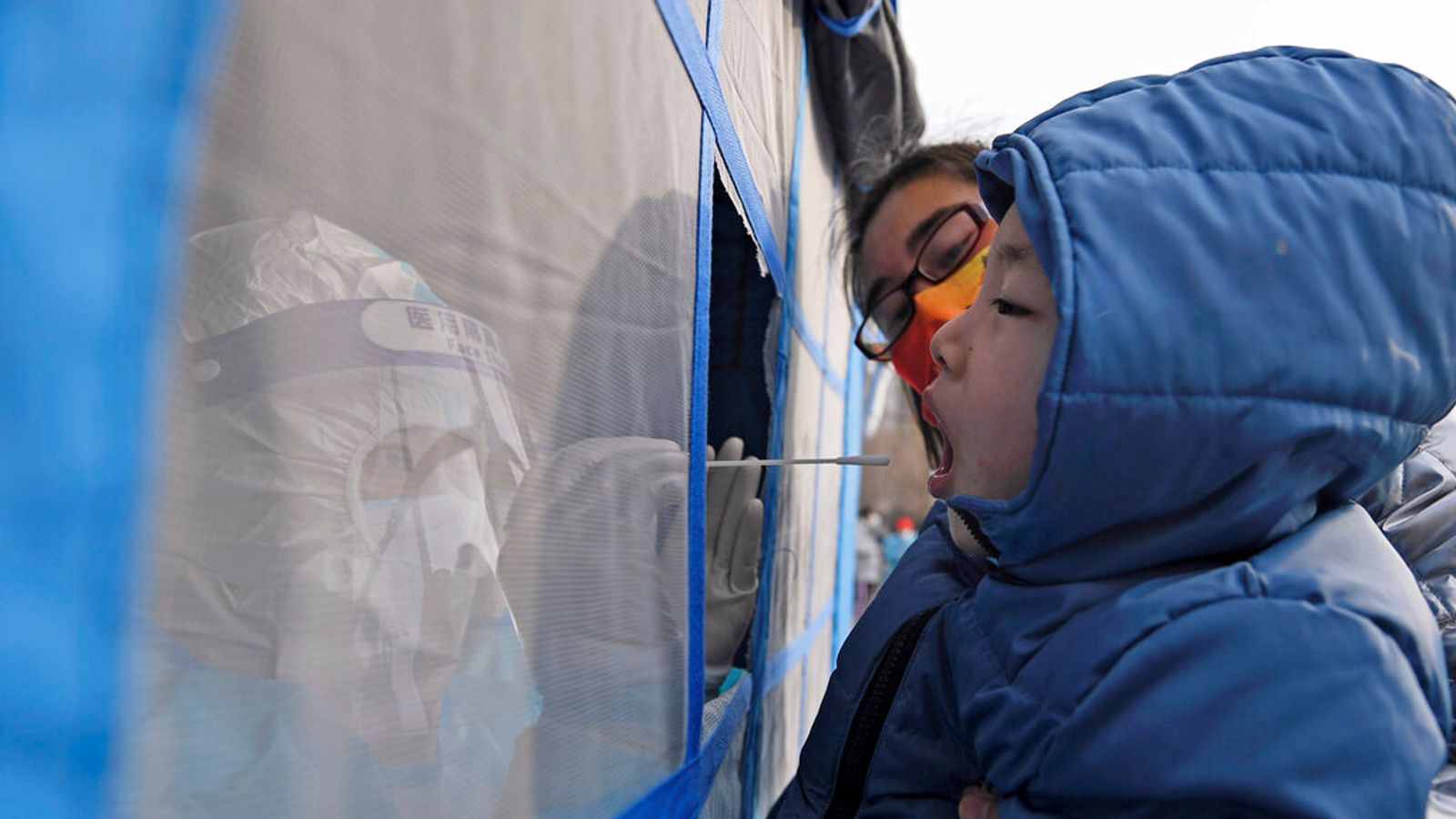About 20 million people in China are now under a stay-at-home order after a third city brought in a strict COVID lockdown.
Anyang in Henan province, with a population of 5.5 million, confirmed a lockdown after 84 cases were detected since Saturday – at least two of them Omicron.
Mass testing is being carried out – established practice in China after even a handful of cases – and non-essential vehicles are banned from the streets.
Thirteen million people in Xian and 1.1 million in Yuzhou are already locked down due to cases of the Delta variant.
Tiered restrictions have also been imposed in Tianjin – about an hour from Beijing – after two Omicron cases were detected among 49 positive tests in the last few days.
The highly infectious variant has so far not taken hold in China like it has in Europe and the US.
However, there are fears a more widespread outbreak could cause problems for the Winter Olympics next month, in a country that has a zero-COVID policy.
“If the mass cluster transmission happens, it will impact the games and the schedule for sure,” said Huang Chun, a games official responsible for disease control.
“The worst scenario, if it happens, is independent of man’s will, so we leave our options open.”
Trains and buses from Tianjin to Beijing – the Olympics host city – have been suspended and people are being told not to leave the city unless it’s urgent.
Chinese New Year is also only a few weeks away – a time when tens of millions normally travel to spend time with family.
The Omicron cases in Anyang and Tianjin are believed to be linked, apparently the first time the variant has spread in mainland China beyond people arriving from abroad and their contacts.
Some not allowed to leave home
Tianjin’s 14 million residents must now submit negative tests if they leave the city and 279 checkpoints have been set up, according to transport vice-director Liu Daogang.
The city has been divided into three levels of restrictions, said state broadcaster CCTV, with people not allowed to leave home at all in the top tier.
In the second tier, just one family member can leave to buy food every other day, while in the third tier people must stay in their neighbourhood.
The first coronavirus outbreak was detected in China but a zero-tolerance approach appears to have limited cases and deaths – especially in relation to its huge population.
Risk of further inflationary pressures
Some 4,636 people have died with the virus in mainland China, according to government figures, while there have been 103,968 confirmed cases.
But it has come at a cost. Analysts say there are risks additional shutdowns resulting from outbreaks could lead to more disruption to supply chains, which could further increase inflationary pressures.






















